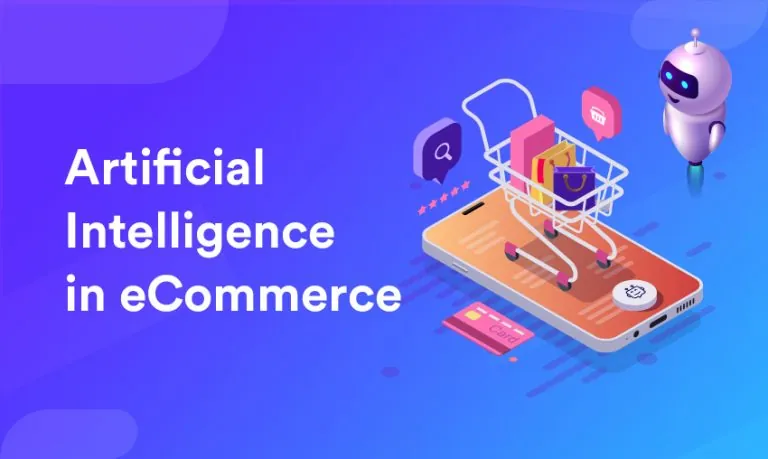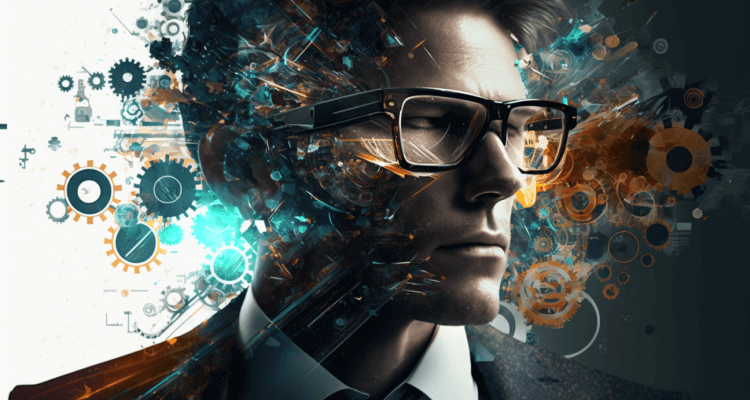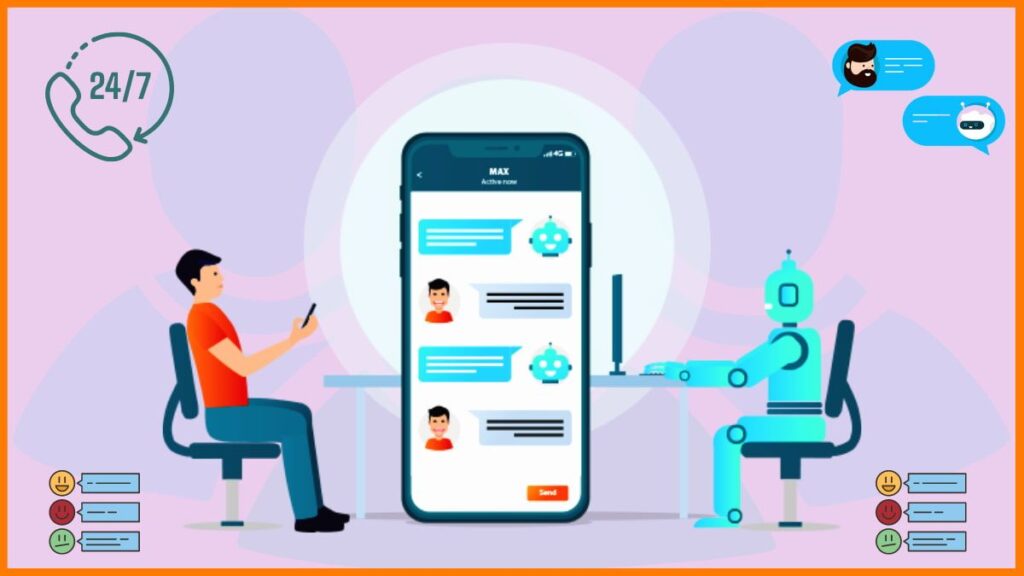E-Commerce has come a long way since the early days of online catalog shopping. With the rapid evolution of artificial intelligence (AI), the industry is now undergoing a transformational shift that’s reshaping how businesses interact with customers, manage operations, and deliver products.
AI refers to the simulation of human intelligence processes by machines, especially computer systems. These processes include learning (acquiring information and rules), reasoning (using rules to reach conclusions), and self-correction.
What is AI?
AI includes technologies such as:
- Machine Learning (ML)
- Natural Language Processing (NLP)
- Computer Vision
- Robotics
These tools are no longer confined to tech labs. They’re driving real-world applications across online stores, logistics, customer service, and even product design.
Overview of AI’s Growing Impact
From personalized shopping suggestions to predictive logistics, AI is enabling retailers to offer more efficient, intuitive, and responsive services. Companies using AI can optimize customer journeys, reduce operational costs, and gain competitive advantages.
Whether you’re shopping on Amazon or browsing a local online boutique, chances are AI is working behind the scenes.
💡 Why E-Commerce Needs AI
Rise in Customer Expectations
Online shoppers expect lightning-fast service, hyper-personalization, and real-time support. Failing to meet these expectations can result in abandoned carts or negative reviews.
Increasing Competition
With thousands of e-commerce platforms emerging daily, businesses must differentiate themselves. AI gives companies the edge to analyze massive data sets, react in real time, and tailor experiences that keep customers engaged.
🔍 Product Search Revolutionized by AI
Product discovery is often the first touchpoint in an e-commerce experience. Traditional search functions relied on keywords, but AI enables more intuitive and accurate search experiences.
Visual and Voice Search
- Visual Search: AI lets customers upload images to find similar products. Pinterest and ASOS are already utilizing this feature.
- Voice Search: AI powers natural speech recognition through smart assistants like Alexa and Siri, increasing the ease of shopping hands-free.
Natural Language Processing (NLP)
AI’s NLP capabilities allow search engines to understand contextual meanings, synonyms, and even spelling errors—making product searches smarter and more human-friendly.
External link: Google AI Research
🛒 Personalized Shopping Experiences
AI thrives on data. By analyzing customer behaviors, browsing history, and purchase patterns, it creates tailored shopping journeys.
Customer Behavior Analytics
AI segments audiences based on behaviors, allowing targeted campaigns and product placements that boost conversion rates.
Recommendation Engines
Netflix and Amazon are prime examples of how AI-driven recommendation systems increase engagement. These engines use machine learning algorithms to suggest products likely to resonate with individual users.
📦 AI-Driven Inventory Management
Managing inventory manually can lead to costly errors. AI automates this by:
- Forecasting product demand
- Balancing supply and demand
- Reducing waste
Predictive Demand Forecasting
AI algorithms analyze historical data, seasonal trends, and current market conditions to forecast future product demands with remarkable accuracy.
Reducing Overstock and Shortages
With predictive analytics, companies maintain optimal inventory levels, reducing lost sales and excess stock.
💬 Chatbots and Virtual Assistants
AI-powered chatbots and virtual assistants have revolutionized customer service in e-commerce. They offer 24/7 support, instantly answering queries, resolving complaints, and even suggesting products.
24/7 Customer Service
Unlike human agents, AI chatbots are available round the clock. They can handle multiple customers at once, reducing wait times and improving customer satisfaction.
Language and Sentiment Understanding
Advanced chatbots use Natural Language Processing (NLP) and sentiment analysis to understand customer emotions and intent. This leads to more human-like interactions and improved issue resolution.
Example: Shopify’s AI chatbot can answer customer queries about order status, delivery, and returns — all without human intervention.
💲 AI in Dynamic Pricing Strategies
Pricing can make or break a sale. AI helps e-commerce platforms fine-tune pricing in real time based on market trends, demand, and competitor behavior.
Real-Time Price Adjustments
Using AI algorithms, businesses can monitor:
- Customer behavior
- Competitor pricing
- Inventory levels
This allows for automated price adjustments that keep the business competitive while maximizing profit margins.
Competitive Analysis
AI continuously analyzes pricing strategies across the market, helping e-commerce brands react quickly to shifts and stay ahead of the curve.
🔐 Fraud Detection and Cybersecurity
E-commerce fraud is a growing concern, but AI is a powerful tool for enhancing online security and trust.
AI-Based Pattern Recognition
AI can identify unusual patterns in user behavior, such as multiple failed login attempts or mismatched IP addresses, to flag potential fraud.
Real-Time Alerts and Prevention
Machine learning models constantly evolve, learning from new data to identify and stop fraudulent transactions in real time. This minimizes financial losses and boosts customer trust.
🎙️ Voice Commerce
Voice commerce is becoming a major trend thanks to AI advancements in speech recognition and processing.
AI-Powered Assistants
Smart speakers like Amazon Echo and Google Home use AI to:
- Search for products
- Place orders
- Track deliveries
Growth in Smart Speaker Usage
Statista reports that over 320 million smart speakers are in use worldwide (as of 2024), and this number continues to grow. E-commerce brands are now optimizing for voice search SEO to stay relevant.
📈 AI-Powered Product Recommendations
Product recommendation systems are the backbone of personalization in e-commerce.
Collaborative Filtering
AI learns what similar users liked and recommends those products. This technique relies on user-item interaction data to drive suggestions.
Deep Learning in Recommendations
Deep learning models consider hundreds of variables, from click-through rates to dwell time, to deliver hyper-personalized suggestions that increase conversion and cart value.
🚚 Supply Chain Optimization with AI
Behind every seamless delivery is a complex network of logistics. AI enhances this supply chain by optimizing routes, automating warehouses, and predicting delays.
Route Optimization
AI-powered logistics systems analyze traffic data, weather conditions, and delivery windows to plan the fastest and most efficient delivery routes.
Logistics Automation
From robotic pickers in warehouses to self-driving delivery trucks, AI is streamlining logistics, reducing delivery times and operational costs.
🔁 AI in Returns and Customer Feedback
Returns are a headache for both customers and retailers — but AI is easing the process.
Automated Return Processing
AI can automatically authorize returns, schedule pickups, and initiate refunds, reducing manual intervention and expediting resolution.
Sentiment Analysis for Reviews
AI tools like MonkeyLearn and Lexalytics analyze product reviews to detect recurring themes or issues, helping businesses improve products and customer service.
🧑💻 Augmented Reality (AR) & AI
Combining AR and AI allows shoppers to experience products virtually, boosting confidence in online purchases.
Virtual Try-Ons
Fashion and cosmetic brands like Warby Parker and Sephora use AI+AR tools to let customers try on glasses or makeup using their smartphone camera.
3D Product Visualization
Furniture stores like IKEA offer 3D previews of how products would look in your home using AI-based spatial detection.
🏆 Case Studies: Brands Leveraging AI
Amazon
Uses AI for everything — from product recommendations to its Alexa voice assistant, and robotics in fulfillment centers.
Alibaba
Alibaba’s FashionAI suggests outfits and manages inventory based on user preferences and real-time data.
Shopify
Shopify’s AI tools help small businesses optimize product listings, automate marketing, and offer AI chat support.
⚖️ Challenges and Ethical Considerations
As AI becomes more prevalent, so do questions about its ethical use.
Privacy Concerns
AI relies on massive datasets — often including personal data. This raises concerns about:
- Data consent
- Storage security
- User anonymity
Algorithmic Bias
If AI systems are trained on biased data, they can make unfair decisions. Transparency and regular audits are essential to avoid discrimination.
🔮 Future of AI in E-Commerce
AI will continue to evolve, introducing smarter algorithms, greater personalization, and fully automated shopping experiences.
Trends and Future Innovations
- Hyper-personalized virtual stores
- AI influencers for product endorsements
- Emotion-based shopping journeys
The integration of AI with blockchain, IoT, and 5G will also redefine what’s possible in the digital commerce space.
📝 Conclusion
AI is revolutionizing the e-commerce industry from top to bottom — transforming how consumers search, shop, interact, and receive their purchases. While challenges like data privacy and algorithmic bias remain, the benefits are undeniable. As AI continues to evolve, those who embrace it will lead the way in delivering seamless, intelligent, and personalized shopping experiences.


